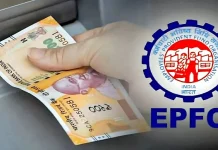New Rules: Markets regulator Securities and Exchange Board of India (SEBI) recently approved changes in rules governing Real Estate Investment Trusts (Reits) and Infrastructure Investment Trusts (InviTs) that invest in infrastructure, to make them more accessible to investors. to be made more acceptable.
What is Reits and InviTs
Reits and InviTs work like Mutual Funds. In this, capital is raised from investors for real estate or infrastructure projects through bonds or securities. Both are means of investment pooling. The REIT portfolio comprises commercial projects such as offices, corporate parks and shopping malls. A large part of these projects are already leased ie pre leased.
Similarly, an InvIT includes projects related to transport, energy or communication. REITs allow small retail investors to invest in real estate properties and earn income through fractional ownership. Similarly, InvIT enables direct investment from individual and institutional investors in projects in the infra sector.
How is the performance so far
Since its launch in 2019, REITs have gained immense popularity among common investors. Despite the difficulties during this period in construction of commercial properties, offices, malls etc. due to adverse market conditions, REITs earned a steady income in the form of rentals during the Covid pandemic. Similarly, there is a vast scope of investment possibilities for InviTs as well.
IRB InvIT Fund was the first InvIT listed on the stock exchanges about six years ago in 2017, while Embassy Office Parks REIT was the first real estate investment trust to be launched in 2019. There have been four REIT listings in the Indian market so far, and there are around 21 listed and unlisted REIT funds. At the beginning of this year i.e. 2023, the value of total assets under InvITs and Reits registered with SEBI was more than 13.5 trillion.
What are these changes of SEBI
Under the amendment in the rules, SEBI has now given nomination rights to the unit holders of InvITs and Reits on the board of the trust. Along with this, the concept of Self-sponsored investment managers has been introduced by changing the minimum unit holding rules for the sponsors of these trusts. Follow-on offers of REITs and InvITs are also being considered and the time taken to process their public listing has been reduced from 12 days to six days.
Why these changes are important
The purpose of these changes made by SEBI is to make the operations of InvITs and Reits more systematic and smooth by improving corporate governance. Along with this, retail unit holders will get an opportunity to express their views about their rights.
The principles of the “Stewardship Code” will now apply to all unit holders (having 10% or more units), thereby increasing accountability of the management. Sponsors will also now have to hold a minimum number of units for the entire period of the REIT or InvIT. Under the new rules, self-sponsored investment managers can now take over the responsibility of REIT sponsors and facilitate the latter’s exit from investments.













